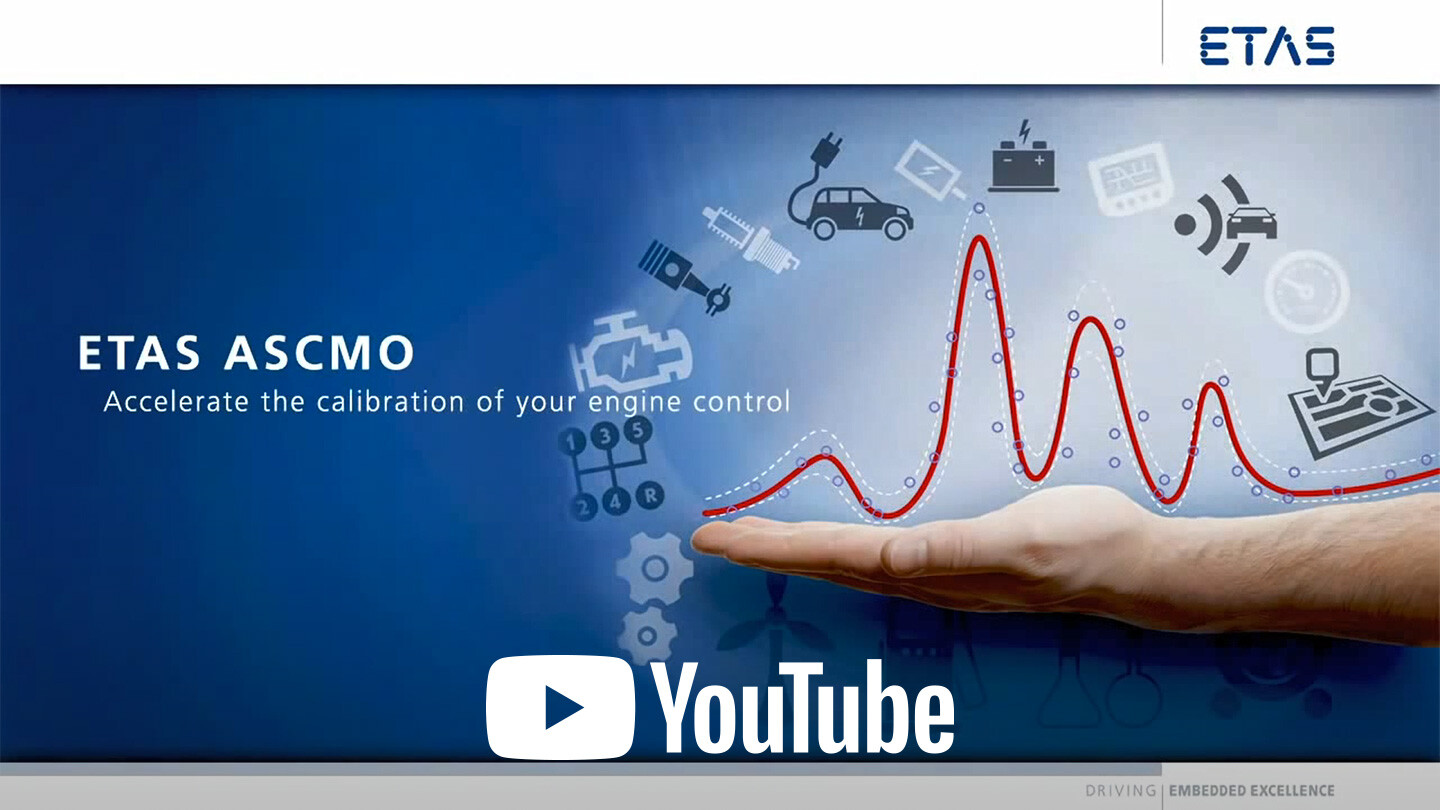Challenge

There is a clear trend in the data entry and application of systems, away from the real system and towards the use of models. These models must describe the behavior of the real system as precisely as possible. In order to prepare future engineers for their work, it is important to introduce them to such simulation methods and the corresponding tools at an early stage. Especially at universities, there is the possibility of using adapted lecture contents to present this methodology and demonstrate the functionality of the tools.
Solution
ETAS ASCMO allows highly precise data-based models to be developed quickly and efficiently. Statistical Design of Experiments (DoE) can significantly reduce the effort required to obtain measured or simulated data that characterize the behavior of a real system. High-precision models are automatically generated by ETAS ASCMO using modern statistical learning methods (Gaussian processes). Even the behavior of highly complex systems can be described by using algorithms without in-depth system knowledge or specific mathematical know-how. With the help of the models, the parameters of real systems, such as engine control units, can be optimized to minimize typical targets such as fuel consumption or emissions.
Benefit
ETAS ASCMO significantly reduces the effort required, for instance, in the application of engine control units. The greater the complexity of the system and the number of free parameters, the greater the time and cost savings.